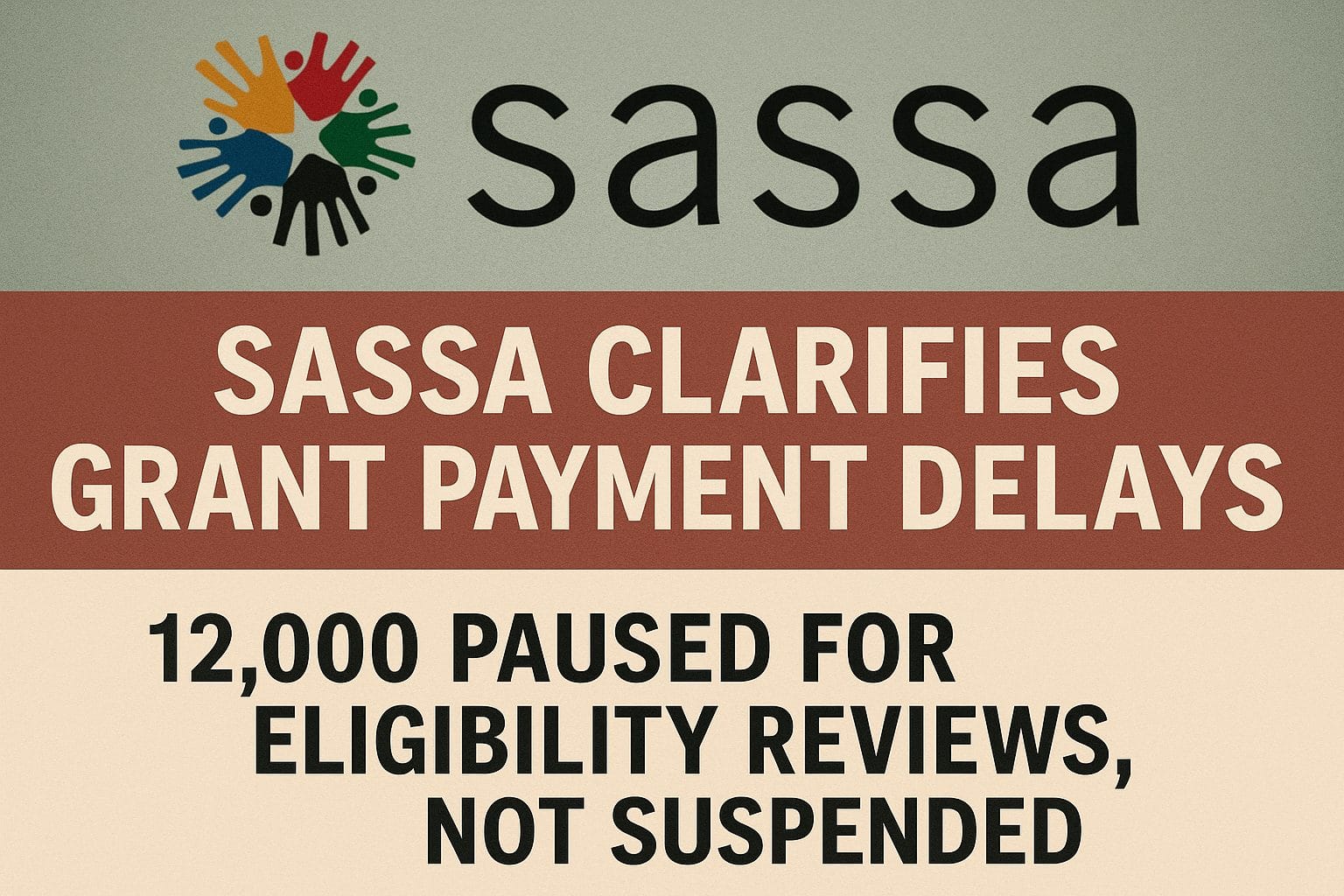SASSA has not suspended all social grants, but has temporarily delayed payments for beneficiaries flagged during a large-scale review. Around 12,000 grants were paused after irregularities such as undeclared income were found.
At the same time, the agency is introducing biometric verification from September 2025 to improve security and reduce fraud.
While these measures strengthen oversight, they have raised concerns from human rights groups about the severe impact of delays on vulnerable groups such as children, the elderly, and persons with disabilities.
No Blanket Suspension of Grants
Contrary to alarming reports, SASSA clarified that no mass suspension of grants has taken place. Payments continue for all valid and approved beneficiaries. The delays only affect individuals whose cases are under review, ensuring compliance with eligibility requirements. Once beneficiaries provide the necessary documents and their status is confirmed, payments resume.
Large-Scale Eligibility Reviews
Over the past few months, SASSA flagged more than 200,000 beneficiaries for review due to possible undeclared income or changes in circumstances. These individuals were required to visit local offices with supporting documentation, such as ID and bank statements. This process is meant to verify whether recipients remain eligible for assistance and to prevent misallocation of funds.
The Case of 12,000 Paused Payments
The figure of 12,000 relates to grants that were specifically paused after system checks revealed discrepancies, particularly unreported income. This targeted action is part of SASSA’s fraud-prevention strategy. It ensures that resources are distributed fairly and go to those most in need, rather than being lost to irregular claims.
Introduction of Biometric Verification
Beginning in September 2025, SASSA will require biometric enrollment for all new applicants and for beneficiaries updating their details. This will involve fingerprint or facial recognition, ensuring each grant is tied to a unique identity. The move aims to tighten security, prevent duplicate claims, and modernize the administration of social support in South Africa.
Concerns from Human Rights Groups
The South African Human Rights Commission has raised concerns about the effect of these administrative measures. Vulnerable groups—including children, elderly citizens, and people with disabilities—are most affected by payment delays, which may compromise their basic rights to food, shelter, and dignity. The commission emphasized the need for SASSA to communicate clearly and handle reviews in a manner that does not cause undue hardship.
In essence, SASSA’s actions are not an across-the-board suspension but part of an ongoing process to secure the grant system against fraud and abuse. While these measures may strengthen accountability and ensure funds are directed to those in genuine need, they highlight the urgent need to balance efficiency with compassion for South Africa’s most vulnerable citizens.
